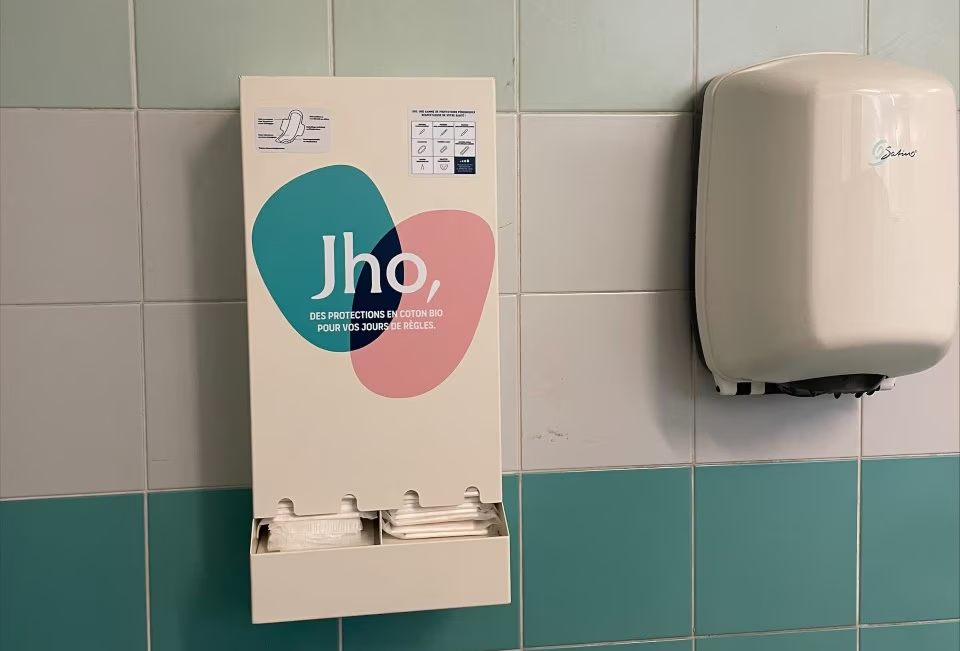Following the success of the first six pilot projects for menstrual product distribution points in Brussels schools, all 19 secondary schools in the City of Brussels (16 French-speaking and three Dutch-speaking ones) are now equipped with them.
One in eight girls and women between 12 and 25 years old do not always have enough money to buy sanitary pads and tampons, a study by Caritas Flanders showed. For girls living in poverty, this percentage rises to 45%. They borrow from friends or craft their own solutions, but that is often accompanied by fear and shame, leading to many girls staying home from school.
"Young girls need information, understanding and guidance to be able to grow up and develop without worry," said Brussels City councillor for Dutch-speaking education Anaïs Maes (Vooruit.brussels) in a press release.

Credit: Office of Anaïs Maes
Menstruating costs money – €12 per cycle, on average. Taking into account the many months and years of their lives a woman menstruates, that amount adds up quickly.
"Starting to menstruate is a drastic event for young teens, and it should be a matter of course that they can get support as well as menstrual products in school," said Maes. "This is a basic need that is still far too expensive for a lot of girls. By offering this at school free of charge, we take away that worry so the focus can remain on learning."
Given the considerable cost involved, the Brussels City authorities decided to provide all secondary schools with distributors of organic menstrual products.
Related News
- Free menstrual products offered in six Brussels schools from this week
- 'Period poverty': Belgium called on to make menstrual products free
Additionally, lessons to counter social discrimination against menstruating girls (Topics covered include: taboos around menstruation, the menstrual cycle and health aspects, among others, as well as the issue of gender through a deconstruction of stereotypes) will be organised.
"The first phase was to install the distributors in schools with a low socio-economic index and were already asking for them," said Faouzia Hariche, Brussels City councillor for French-speaking education. "We then analysed the frequency of use and the quantities needed to extend the initiative to the whole educational level."

